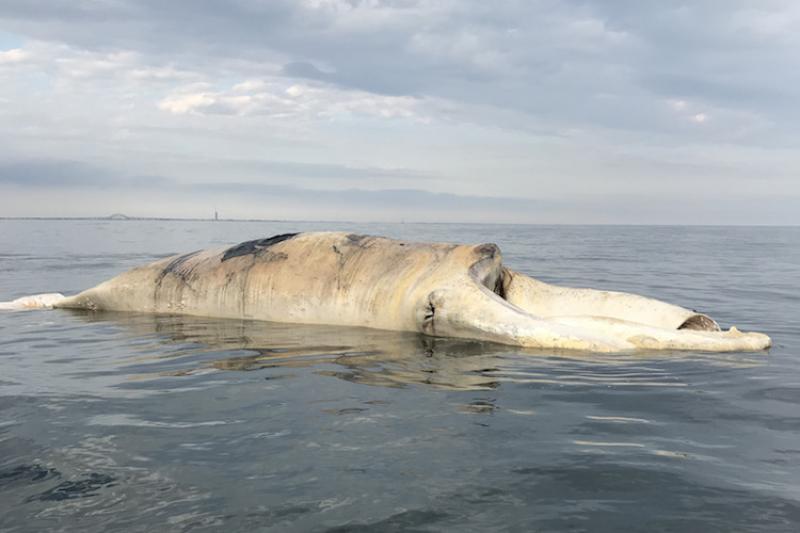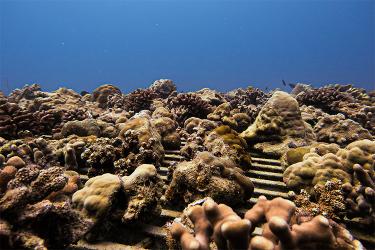September 18, 3:30 p.m.
The necropsy team, led by AMSEAS, finished their examination and sampling this afternoon a little before 2 pm, after which the carcass was buried. The team gathered information and samples, and will be reviewing them in the coming days.
Scientists at the Center for Coastal Studies and New England Aquarium have identified this whale as Snake Eyes, #1226. He was a male, approximately 40 years old. Snake Eyes was last seen entangled in the Gulf of St. Lawrence on August 6, 2019, after being seen gear-free there on July 16. This is his first sighting since the entanglement.

September 18, 8:30 a.m.
The carcass was landed and secured ashore late yesterday evening on Jones Beach State Park. The whale is a male, approximately 45 feet long. The necropsy team will begin the necropsy soon. After the necropsy, the carcass will be buried on site at the beach.

September 17, 6:45 p.m.
AMSEAS and NYS DEC, with help from SeaTow and Town of Hempstead, towed the carcass to Jones Beach State Park. It arrived at around 4:45 pm this afternoon. The tow took several hours, as they were moving slowly due to the wind and level of decomposition. The team is currently securing the whale on the beach.
Tomorrow a necropsy team, led by AMSEAS and including scientists from International Fund for Animal Welfare and Center for Coastal Studies, will gather data and samples. We will try to get as much information as we can about this individual. We do not yet have any information on gender, age, or any possible causes of death.
We ask the public and drones to please keep at least 150 feet away from the whale in all directions. We thank our partners who have been leading or assisting the recovery operation today, including Atlantic Marine Conservation Society, New York Department of Environmental Conservation, U.S. Coast Guard, New York State Office of Parks, Recreation and Historic Preservation, Fire Island National Seashore, SeaTow, International Fund for Animal Welfare, Center for Coastal Studies, and Jones Beach State Park.

September 17, 11:15 a.m.
On Tuesday morning, a team from AMSEAS and NY DEC went out to search for the carcass, and located it around 10:30 am, floating about 5 miles south of Jones Beach. We are developing a response plan, and will keep you updated.
September 16, 9:37 p.m.
This afternoon, NOAA Fisheries received a report of a dead North Atlantic right whale floating 4 miles south of Fire Island Inlet off Long Island, New York. The carcass is extremely decomposed. We are not able to provide any details on the whale’s cause of death, age, or sex at this time.
We are working with Atlantic Marine Conservation Society (AMSEAS), New York Department of Environmental Conservation (NY DEC), U.S. Coast Guard, New York State Office of Parks, Recreation and Historic Preservation, and Fire Island National Seashore on a response plan. We hope to be able to further examine the whale tomorrow.
This is the first observed right whale death in U.S. waters in 2019. An unusual mortality event (UME) has been in effect for North Atlantic right whales since 2017, during which nearly 30 whales have been found dead in U.S. and Canadian waters.
North Atlantic right whales are endangered. Only about 400 right whales remain, of which only about 95 are breeding females.
We will share more information on this whale as we receive it.
NOAA Fisheries reminds the public to report sick, injured, stranded, or dead marine mammals to your local stranding network. In New York, please call (631) 369-9829.



